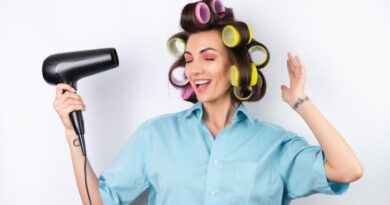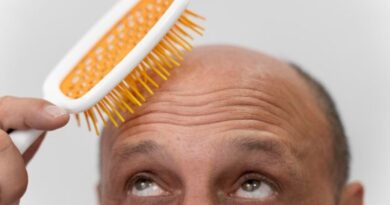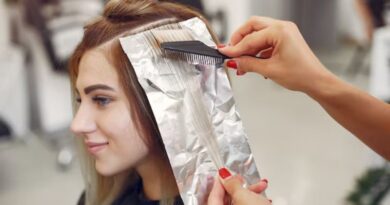Sun In spray is considered a fast & good alternative to bleaching for lightening your hair color. It has been present in the market for decades now & three generations have been using the Sun In hair lightening spray. Still, its popularity is on rising. How does it work? Just spray it on your damp hair & the heat of the sun or dryer will do all the work. There have been questions on the safety of using the sun in hair spray in recent years. Like, does sun in ruin hair, or Is sun in bad for your hair?
Actually, yes, sun in is bad for your hair. Surely it can give a sun-kissed & lighter look to your hair, but to do that, it contains many harmful chemicals like Peroxide, sulfates, ammonia, chamomile, lemon juice, and glycerin which you may know how to affect your hair.
What is Sun In hair spray & how does sun in work?
Sun In is a product, which is chemically formulated &, when applied, makes the hair appear to look in light hair color & sun-kissed. Sun In works when coming in contact with heat. So you can use a blow dryer or the sun to activate it after you apply it to your hair. Your hair follicles then get the lighter color with activation of ingredients in the mix.
Blondes love the results of the Sun In, and even brunettes may come to appreciate the new color it gives them after only a few applications.
It can be called as one of the best inexpensive ways to get the beachy blonde look without going to the hair salon.
Is sun in hair lightener permanent?
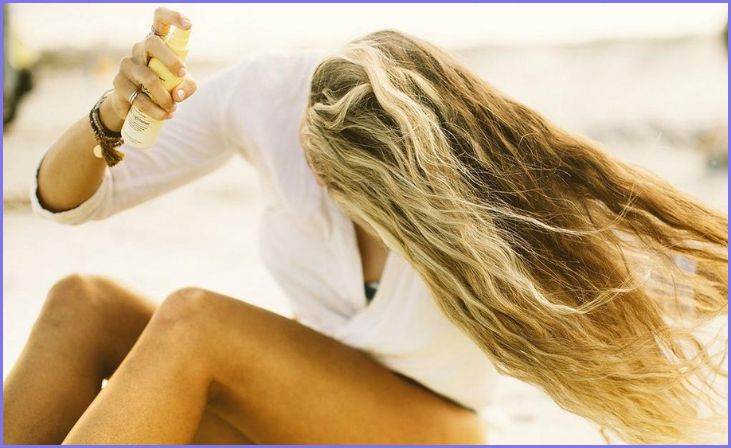
The product will wash away once your hair has been shampooed, but its color-lightening effects are permanent. As your hair grows out, the effects will fade. So yes, the Sun In hair lightener is permanent & will give your lighter hair for a long time.
The results will be slightly lighter than your original hair color & you will need to use it frequently to achieve a lighter hair tone that will stay for a long time.
Is sun in spray bad for your hair?
Sun In indeed does a lot of harm to your hair. Peroxide, sulfates, ammonia, chamomile, lemon juice, and glycerin are just a few of the harsh ingredients included in the eyecatching yellow bottle of it.
While at-home lightening sprays might do some damage, bleaching your hair at yourself or having it done by a professional can do considerably more harm than that.
So overall, yes, the Sun In hair spray is damaging, but its effects are much lower than other hair color lightening treatments.
Moreover, if you are applying Sun In hair spray for more than two times a week, then it will surely not be fruitful for your hair & your hair may get damaged from inside.
How is sun in bad for your hair?
Sun In is definitely one of the hair-lightening sprays that might cause major damage and brassiness to your hair. In addition, the peroxide in these products may be raising your hair by opening the cuticle.
The hair is likely merely being opened and damaged if there isn’t a coloring ingredient mixed in. It’s also possible that you’ll end up with orange or yellow hair since the underlying pigment is all heated.
Moreover, other ingredients like lemon juice and sulfates definitely negatively affect your hair. So, you should use Sun In only for about twice a week & if you have dark hair, never ever think about using it.
Read Also: At what age should you stop having long hair
Is sun in good for your hair?
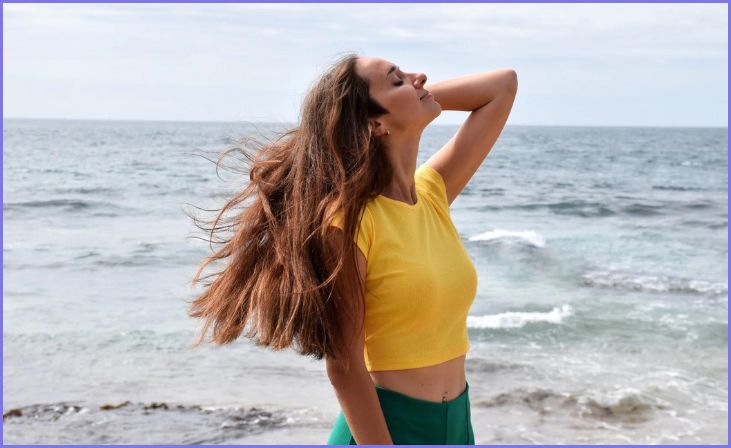
If compared to other hair lightening treatments, Sun In hair spray is surely good for your hair as it causes less damage to your hair than the hair-life stripping treatments like bleaching.
On the other side if we only see through the point of view of our hair health, then the Sun In is not good for your hair as it contains many harmful chemicals. Moreover, using it in excess will surely cause a lot of damage to your hair, which explains why it will not be good for your hair.
Is lemon juice in the sun bad for your hair?
Lemon Juice is one of the ingredients in the sun in hair spray, and yes, lemon juice is bad for your hair & with lots of heat or sun exposure, the lemon juice can result in damage to your hair cuticles.
So neither the lemon juice in Sun-In is suitable for your hair, nor Sun In is good for your hair.
Does sun in ruin hair?
Yes, the sun in hair spray can ruin your hair if you use it frequently or use it on the wrong hair color or even on recently dyed hair.
Your hair will get utterly dry and damaged if you use it every day. Becuase as you know, for that sun-kissed look, Sun In includes peroxide, sulfates, ammonia, chamomile, and lemon juice as well as glycerin to aggressively attack the hair. So using it every day will definitely ruin your hair.
It will have a terrible impact on dark hair because orange hues will emerge. Becuase the dark hair has shades of red & orange in them. And the Sun In works by removing the undertones in hair, so with effects on red undertones, the hair will come out to be orangey or brassy.
When you get your hair dyed at the salon, there is a lot of chemicals used on your hair, and when they are blended with additional chemicals like those in Sun-In, they might cause damage to your hair down the road. Rarely, these responses may cause big clumps of hair to fall out in a matter of seconds.
So it is best to wisely use Sun-In spray & never use it on dark hair or recently dyed hair.
Read Also: How To Tell If Your Hair Needs Protein
How can the damage from Sun in minimized?
You can minimize the damage from the use of Sun In with the use of some products & tips. However, the risk will be minimized and not completely end.
Here are those tips:
- A moisturizing treatment after using Sun-In is all that is needed to keep your hair in good condition.
- However, if you want to use it more than three times, you will need to prepare your hair like you are getting hair bleaching.
- Apply a generous amount of coconut oil to your hair from root to tip at least four hours in advance.
- Every time you wash your hair, use keratin moisturizing shampoo and conditioner.
- Prevent dehydration by applying repair oils to the ends of your hair throughout the day.
These steps will help minimize the risk of hair damage from using Sun-In. Overall, our advice is to only use Sun-In at most two times a week & not more than that.
How to use sun in spray?
Sun In spray is very easy to use. You just need to follow some easy steps & you will achieve sun kissed & beautiful hair.
- Make sure your hair is damp and undamaged before applying the Sun In.
- Spray it six inches away from hair.
- To ensure that the product is evenly distributed, comb it again after applying it.
- To thoroughly dry Sun In, use a hairdryer set to medium or high heat.
Immediately after the first application, you will notice that your hair is lighter. However, do not use it more than twice a weeks-kissed because more than this will harm your hair.
Quick Link: Guide on Protein treatment for Hair in Salon
What do Customers say about the Sun In?
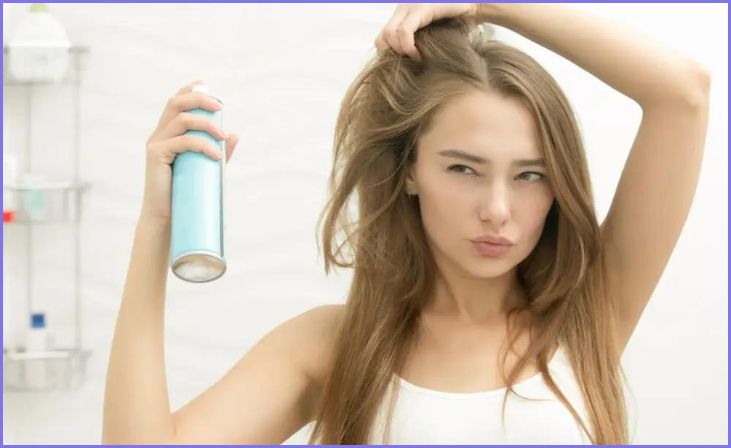
This was all about the scientific facts & researches about Sun In, which have proven the Sun In to be damaging. Now, let’s have a look at customer reviews & what does real users of the product say about it.
Some customers who loved it:
Toni Hernandez said, ”I grew up in the 80’s and this is what we all used to get our hair lighter. I love it still!! I’ve gotten sooo many compliments on my hair as well as questions asking what salon I went to. When I tell them it’s sun in they can’t believe this is all I used. Will repurchase.”
Ylemus said, ”I love this stuff. It smells great and doesn’t damage your hair. My untreated black hair turned orange after the first few uses but it’s keeps getting lighter with every application.”
Melissa posted, ”I used this as a teenager and remembered how I could get a lightened summer look. Same product, but the new scent is great. It was less damaging than my last color.”
Some customers who doesn’t love it:
Casey posted, ”Absolutely fried my hair, my hair dresser was mortified, she asked if I had used the product BY NAME because of how well known this product is to screw up your hair.”
Paulina Czupryna reviewed and said, ”Do not use.. will only turn your hair orange especially in the light… roots will look very unflattering and will create orange partches in hair…
Do not use!”
Brittany said, ”I’m a natural blonde but wanted some gold streaks. This stuff turned my hair strawberry red! Had to spend $80 to get it fixed at a salon. What a waste.”
These were the reviews of Sun In on Amazon. Around 67% of customers have given it five stars, so yes, Sun In really works well & will not damage hair if used not more than two times a week.
Bottom Line
Prolonged sun exposure is detrimental to hair health, causing dryness, brittleness, and color fading. UV rays penetrate the hair cuticle, breaking down proteins and natural oils, leading to damage and loss of elasticity. Regular protection through hats, scarves, or UV-filter hair products is crucial to mitigate these effects. Sun damage, characterized by signs like split ends and rough texture, can be managed with proper care, though complete reversal is not possible. Consistent protective measures and a nourishing hair care routine are essential to maintain hair vitality in the face of sun-induced stress.
FAQs
UV rays can break down the proteins in the hair shaft, leading to weakened and damaged hair. Additionally, sun exposure can strip the hair of its natural oils, making it more prone to dryness and frizz.
Yes, the sun can accelerate the fading of hair color, especially in dyed or treated hair. UV rays penetrate the hair cuticle and can break down the pigments in the hair, causing color to fade more quickly.
Signs of sun damage to hair include dryness, split ends, frizz, loss of elasticity, and changes in hair color. Sun-damaged hair may also feel rough and brittle.



